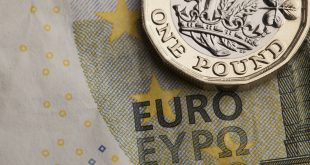The dollar weakened on Thursday, pressured by recent signs of a slowing U.S. economy. This offered limited support to the embattled yen, which remained near a 38-year low against the dollar, raising concerns of potential government intervention.
Meanwhile, the euro and sterling held near three-week highs against the dollar as investors focused on elections in the UK and France. The dollar index, which tracks the greenback’s performance against a basket of currencies, hovered around 105.32 after briefly touching its lowest level since June 13.
Recent U.S. economic data, including a disappointing services report and a weaker-than-expected ADP employment report, have painted a picture of a slowing economy. Minutes from the Federal Reserve’s June meeting also acknowledged the slowdown and indicated diminishing price pressures.
Market expectations for a U.S. rate cut in September have increased, driven by the weaker economic data. This has contributed to the dollar’s decline, providing a temporary reprieve to the battered yen.
However, the yen remained precariously close to its lowest level since 1986, with traders bracing for possible intervention by the Japanese government. The upcoming U.S. nonfarm payrolls report on Friday also added to market nervousness.
Spotlight on Elections
With the U.S. markets closed for Independence Day, attention shifted to the UK’s general election. The Labour Party, led by Keir Starmer, is expected to win, potentially ushering in a new era of closer ties with Europe and a more favorable economic environment.
In France, the second round of voting in the presidential election is scheduled for Sunday, adding another layer of uncertainty to the European political landscape.
Cryptocurrencies Slide
In the cryptocurrency market, bitcoin and ether both experienced significant declines, reaching two-month lows before recovering slightly.
 Noor Trends News, Technical Analysis, Educational Tools and Recommendations
Noor Trends News, Technical Analysis, Educational Tools and Recommendations





